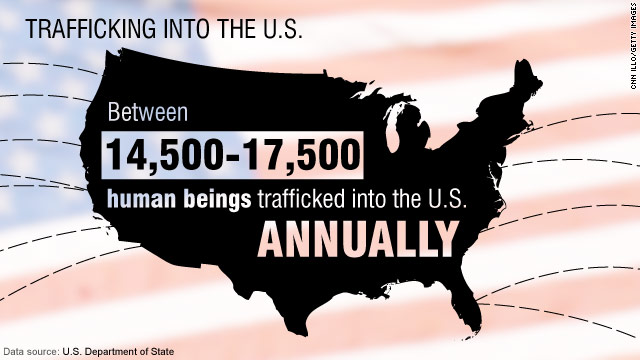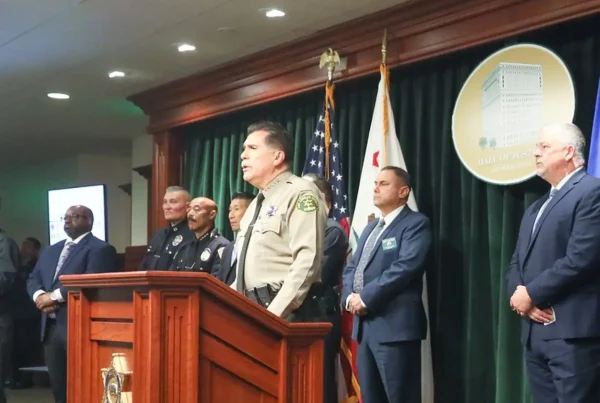
By Maggie Weiler Via Human Rights First
Although the United States abolished slavery with the ratification of the 13th Amendment over 150 years ago, there are still an estimated 24.9 million slaves living around the world today. To raise awareness of this crime and its prevalence in our modern world, January was named National Slavery and Human Trafficking Prevention month.
The United States continues to be both a source and destination country for human trafficking victims. According to the Polaris Project, as of June 2017, the national human trafficking hotline had received 13,897 calls that year, which is expected to double when final stats are reported in early 2018. These calls represent reports of potential trafficking cases or come directly from people seeking help.
While many people continue to think of human trafficking as a third-world problem, the numbers paint a very different picture, with 2,105 of the 7,621 human trafficking cases recorded in 2016 involving U.S. citizens.
Over the past 18 years, the United States has taken numerous actions to help combat human trafficking both domestically and internationally. In 2000, Congress enacted the Trafficking Victims Protection Act (TVPA) which built a better system of laws to combat trafficking. In 2015 Congress also passed the Justice for Victims of Trafficking Act, meant to expand the capacity of the U.S. government to help survivors of human trafficking. It has also banned goods made with forced labor from entering the U.S. market and worked to stop the use of forced labor by companies that hold government contracts effective at combating human trafficking.
In 2018, as we honor National Slavery and Human Trafficking Prevention month, we should keep this progress in mind while continuing to improve policies to combat modern slavery worldwide.
In the coming year Congress should:
Reauthorize the Trafficking Victims Protection Act: Last authorized in 2013, this landmark legislation expired in September 2017. A number of strong legislative vehicles reauthorizing TVPA moved through the House and Senate last year, but are still awaiting passage through both chambers. These bills reauthorize the most critical anti-trafficking laws and go a step further, including a critical provision adding human trafficking specialists to U.S. Attorney’s offices throughout the country who will help to gain justice for victims and hold perpetrators accountable.
Last year, according to the State Department, there were only 439 trafficking convictions in the United States. This is a partially a result of the complexity of human trafficking cases and a lack of the governmental collaboration needed to successfully tackle them. Many prosecutors lack the time or resources to take on these complicated cases. Adding a designated prosecutor would bring the capacity to increase collaboration between federal, state, tribal, and local law enforcement and victim service providers to help identify and undertake these complex cases, leading to more prosecutions for trafficking crimes.
Robust enforcement of the ban on goods made with forced labor: By amending Section 307 of the Tariff Act in 2016, Congress removed a longstanding loophole that prevented the strong enforcement of a ban on the import of goods made with forced labor into the United States. To enforce this ban, U.S. Customs and Border Protection (CBP) needs to initiate robust investigations into the use of forced labor. As of now, it is estimated that the United States imports $142 billion worth of goods made with forced labor annually. Congress should continue to press CBP to act with urgency to identify and stop shipments made with forced labor.
Modern slavery touches each of our lives through the clothing we wear, the electronics we use, and the prevalence of the practice in communities across the country. This year, it is the responsibility of each of us not to turn a blind eye to this crime. The United States must continue to improve policies and laws to ensure that all of us are not complicit in supporting markets for slavery.



